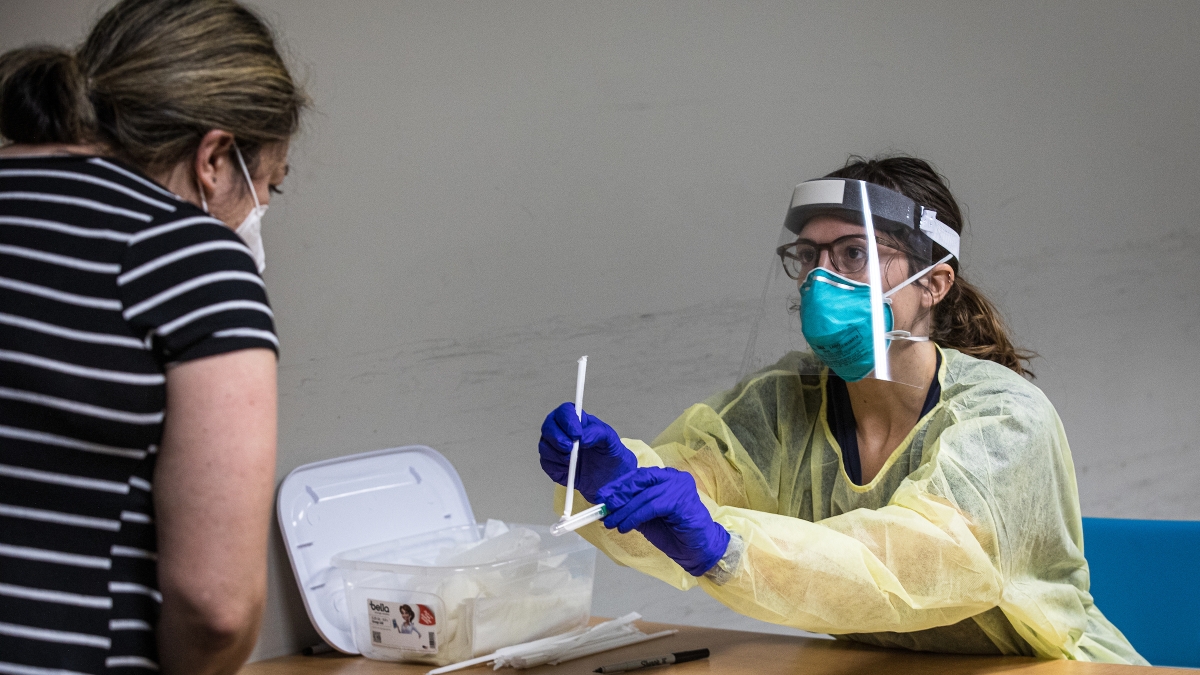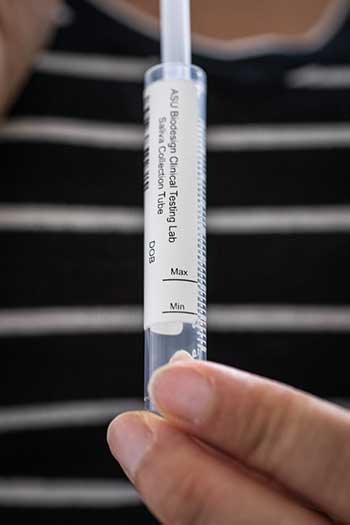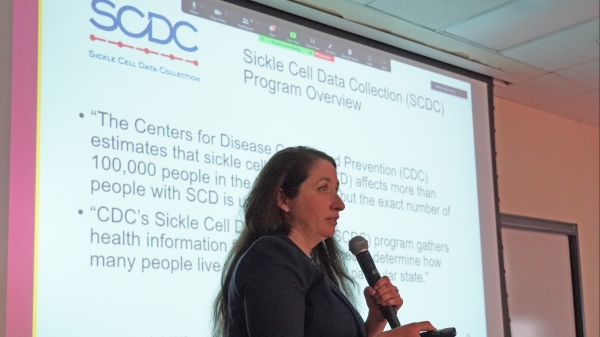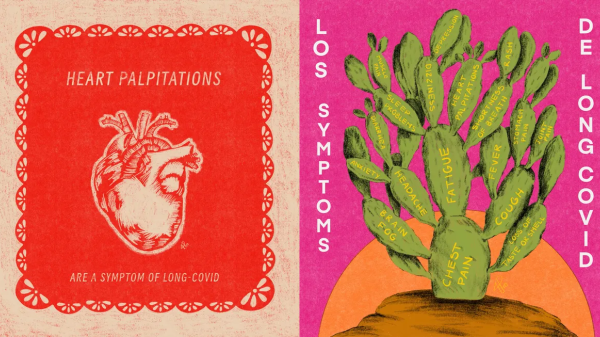ADHS, ASU announce partnership to increase COVID-19 testing in Arizona
ASU will launch program to provide free saliva-based diagnostic testing for up to 100,000 Arizonans

Editor’s note: This story is being highlighted in ASU Now’s year in review. Read more top stories from 2020.
July 13 update: An additional date has been added: 7-11 a.m. Tuesday, July 14. Appointments can be made at the same link below, with the same agency code. Please check azhealth.gov/testing for future dates and times.
The Arizona Department of Health Services (ADHS) and Arizona State University announced a new partnership Thursday that will increase COVID-19 diagnostic testing in Arizona. ASU will launch several testing sites that will provide free saliva diagnostic testing for COVID-19 in high-need underserved communities around the state.
The tests are by appointment only, which can be scheduled by visiting azhealth.gov/testing. The first testing will take place on Saturday, July 11, from 8 a.m. to noon at Ak-Chin Pavilion, Gate 6, 2121 N. 83rd Ave. in Phoenix. Pre-register now by creating an account using the code SALIVATEST. Note that saliva testing is prohibited for those under the age of 8 years old.
Through this partnership, ADHS has committed up to $12.7 million to fund the expansion of testing sites to serve up to 100,000 Arizonans. ASU’s Biodesign Institute announced in May that it had developed the first saliva-based COVID-19 test in the state and has been utilizing saliva-based testing over the past six weeks to test critical workforce including health care workers, first responders and infrastructure personnel. ASU has also been using the saliva-based test with employees and students.

ASU’s Biodesign Institute developed the first saliva-based COVID-19 test in the state and over the past six weeks has used it to test critical workforce. In the coming week, it will begin testing the public. Photo by Charlie Leight/ASU Now
“This critical partnership will have an immediate impact in the fight against COVID-19 and help us surge testing where it’s needed most,” Gov. Doug Ducey said. “My thanks to Arizona State University for their continued partnership and for continuing to step up to aid public health in innovative and invaluable ways.”
“We are excited to partner with Arizona State University to launch this new testing program that will increase our capacity to test more people for COVID-19,” said Dr. Cara Christ, ADHS director. “Testing is an important public health tool to help us track COVID-19 and to implement mitigation strategies to slow the spread of the disease in Arizona, and over the last several months we have been working with partners across the state to increase COVID-19 testing. This includes providing funding for new testing equipment and distributing specimen collection kits to health care partners, laboratories and local health departments.”
“It is the university’s commitment to be of service to the citizens of the state of Arizona in any way we can as we all work together to deal with the impact of the COVID-19 pandemic,” said ASU President Michael M. Crow. “We are fortunate to have some extremely talented people at the university who have developed an innovative testing model, and it is our duty to share that expertise and put it to work to help prevent the spread of COVID-19.”
The new partnership with ASU will further increase the number of people who are getting a diagnostic COVID-19 test. ASU is working with ADHS on details related to future testing sites around the state. Since April, PCRPCR, or polymerase chain reaction, tests are used to detect the presence of an antigen. diagnostic testing has increased 596% from 52,866 tests in April to 367,992 tests in June. There have been 36,653 PCR tests reported in the first week of July.
Arizonans can take the following precautions to mitigate the spread of COVID-19:
- Stay home when you are sick.
- Wear a mask every time you are in public, even if you do not feel sick.
- Physically distance by staying at least 6 feet away from others who are not in your household when you are in public.
- Avoid gatherings of more than 10 people.
- Arizonans at higher risk for severe illness should continue to stay at home and avoid crowded public spaces. People at higher risk for severe illness include adults 65 or older and people of any age who have serious underlying medical conditions.
- Wash your hands often with soap and water for at least 20 seconds. If soap and water are not available, use an alcohol-based hand sanitizer that contains at least 60% alcohol.
- Avoid touching your eyes, nose and mouth with unwashed hands.
- Cover your cough or sneeze with a tissue or your sleeve (not your hands) and immediately throw the tissue in the trash.
- Clean and disinfect frequently touched objects and surfaces.
Health care providers are offering testing at nearly 300 testing locations statewide. People are encouraged to follow the instructions on the testing website as many of the health care providers require individuals to pre-register for testing and may have other requirements to get tested. Testing locations along with appointment times and registration links can be found online at azhealth.gov/testing.
Top photo: Meghan Herrick (right) demonstrates giving Irene Mendoza instructions to fill the collection tube between a minimum and maximum level at one of seven ASU employee COVID-19 testing sites on Thursday. Photo by Charlie Leight/ASU Now
More Health and medicine

College of Health Solutions course to explore science behind longevity, well-being
Arizona State University’s College of Health Solutions has responded to the surge in interest in blue zones — those rare communities where some of the oldest people on Earth reside — with a new, self…

ASU center hosts community gathering to discuss latest health research
Communication and collaboration were front and center as Arizona State University’s Center for Health Information and Research, or CHiR, met with community partners and other stakeholders on April 3…

Health communication program brings long COVID awareness to Latinos
After COVID-19 hit the Latino community especially hard, Gilberto Lopez created COVIDLatino, a health communication program designed to share accurate, timely, evidence-based and culturally tailored…